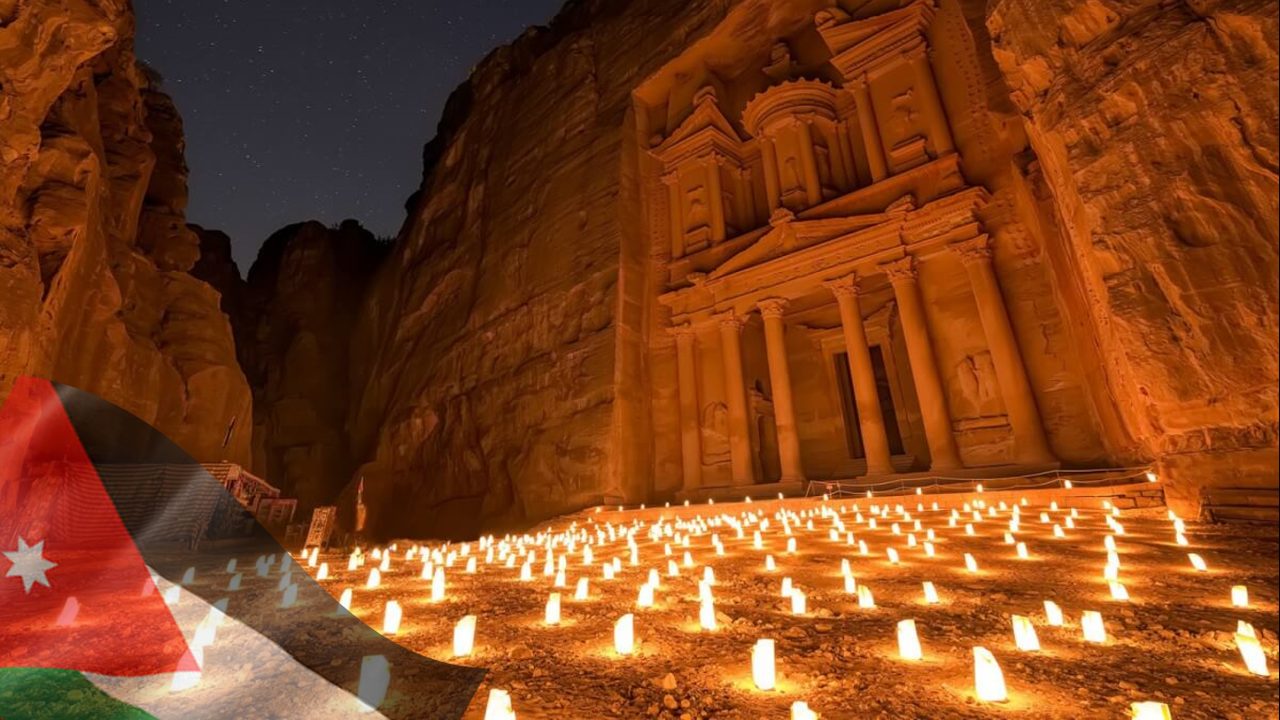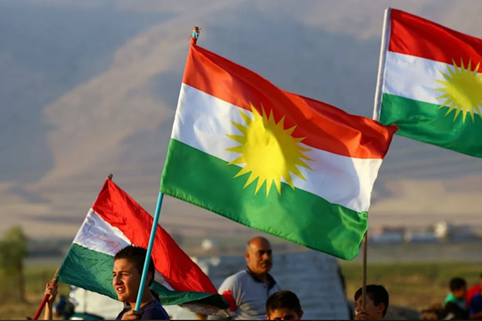https://www.almayadeen.net/news/politics/المجلس-الوطني-الكردي-في-سوريا-يرفض-الإعلان-الدستوري–يعيد-إن
The General Secretariat of the Syrian Kurdish National Council announces that it rejects the constitutional announcement that was signed by Aḥmad aš-Šar‘a and views that it “is tool for enforcing a status quo”. It confirms that it “disregards the diversity”.
14 March
The General Secretariat of the Syrian Kurdish National Council announced that it rejects the constitutional announcement that was signed by President of the transitional period Aḥmad aš-Šar‘a on Thursday, confirming that it represents “another step towards building one side and concentrating the power”.
The Council expressed that “its is surprised and disappointed” by the constitutional announcement, pointing out that it “came far from the expectations for building a democratic state reflecting the true diversity of the Syrian society”.
The Council believes that this matter “requires a responsible position by all national, democratic and patriotic forces to work towards reviewing the announcement towards achieving political and national diversity”.
“A tool for enforcing the status quo”
The Syrian Kurdish National Council confirmed that setting the transitional period in 5 years “without guarantees for just participation transform it into a tool of enforcing a status quo, instead of paving the way for true political transformation”. It warned about the matter “deepening the crisis, instead of solving it”.
It pointed out that the committee that was set up by the announcement “does not represent the different political, national and and religious components”, which “deprives it of the comprehensiveness and national consensus and leads to enforcing a system of oppression and concentration of power”.
Ot pointed out that the announcement “disregards the diverse nature of Syria and the reality of its identity as an ethnically and religiously diverse state and does no guarantee the ethnic and religious rights of its components, but enforces one particular ethnic identity in the name of the state, clearly oppressing the others”.
The General Secretariat of the Kurdish National Council underlined that the announcement “contradicted the principle of separating the state from religion”, by “still requiring the religion of the president, which contradicts the equality of the national foundations, which was supposed to the basis of any democratic regimes”.
It stated that the constitutional announcement “strengthened the regime of a central rule and granting the president broad privileges without clear guarantees for the separation of powers, or achieving institutional balances. Which raises fears about once again creating oppression within a new context”.
The Council also pointed out that the stipulations of the announcement “secured further restrictions on the civilian and personal liberties and limited the role of women keeping its social position and role”. It thus conformed that this “creates a continuation of a ruling and controlling over the society”.
The Council confirmed “its dedication for struggling for a just democratic solution for the Kurdish matter, as it is a matter of an indigenous people within the decentralized Syria, guaranteeing the rights of all of its citizens and creating justice and equality among them”.
This comes after the president of the interim period in Syria signed a draft constitution announcement after receiving it from the legal experts’ committee that had worked on its text.
The draft constitutional announcement held that “the Islamic jurisprudence will be the fundamental source of the legislation” and that the religion of the president will remain to be a Muslim”. It also confirmed its dedication to totally separate the powers.
According to the constitutional announcement the National Assembly totally takes over the works of the legislature, while the president takes over the executive power and grants him the right to announce a state of emergency.
Pic: The Syrian Kurdish National Council: the announcement came far from the expectations about building a democratic state reflecting the true diversity of the Syrian society
المجلس الوطني الكردي في سوريا يرفض الإعلان الدستوري: يعيد إنتاج الاستبداد
الأمانة العامة للمجلس الوطني الكردي في سوريا تعلن رفضها الإعلان الدستوري، الذي وقّعه أحمد. الشرع، وترى فيه “أداةً لتكريس الواقع القائم”، مؤكدةً أنّه “يتجاهل التعددية
14 آذار
أعلنت الأمانة العامة للمجلس الوطني الكردي في سوريا رفضها الإعلان الدستوري، الذي وقّعه رئيس. المرحلة الانتقالية، أحمد الشرع، أمس الخميس، مؤكدةً أنّه يمثّل “خطوةً أخرى نحو ترسيخ الأحادية والاستئثار بالسلطة”.
وأعرب المجلس عن “مفاجأته وخيبة أمله” بالإعلان الدستوري، مشيراً إلى أنّه “جاء بعيداً عن التطلعات. نحو بناء دولة ديمقراطية، تعكس التنوّع الحقيقي للمجتمع السوري”.
ورأى المجلس أنّ هذا الأمر “يستوجب موقفاً مسؤولاً من جميع القوى الوطنية الديمقراطية والقومية، للعمل. على إعادة النظر في الإعلان، على نحو يحقق التعددية السياسية والقومية
“أداة لتكريس الواقع القائم“
وأكد المجلس الوطني الكردي في سوريا أنّ تحديد المرحلة الانتقالية بـ5 أعوام، “من دون ضمانات لمشاركة. عادلة، يحوّلها إلى أداة لتكريس الواقع القائم، بدلاً من أن تكون تمهيداً لتحوّل سياسي حقيقي”، محذّراً من أن هذا الأمر “يعمّق الأزمة، بدلاً من حلها”.
وأشار إلى أنّ اللجنة، التي أعدّت هذا الإعلان، “لا تمثّل مختلف المكوّنات السياسية والقومية. والدينية”، الأمر الذي “أفقده الشمولية والتوافق الوطني، وأدى إلى تكريس نهج الإقصاء والاستئثار بالسلطة
ولفت إلى أنّ الإعلان “تجاهل الطبيعة التعددية لسوريا، وحقيقة هويتها دولةً متعددة القوميات والأديان، ولم. يضمن الحقوق القومية والدينية لمكوّناتها، بل ثبّت هويةً قوميةً واحدة في تسمية الدولة، في إقصاء واضح لغيرها”.
وشدّدت الأمانة العامة للمجلس الوطني الكردي على أنّ الإعلان “خالف مبدأ تحييد الدولة عن الأديان”، “عبر. إبقائه على اشتراط دين رئيس الجمهورية، الأمر الذي يتعارض مع أسس المواطنة المتساوية، والتي يُفترض أن تكون أساس أي نظام ديمقراطي”.
وقالت إنّ الإعلان الدستوري “عزّز نظام الحكم المركزي، ومنح رئيس الجمهورية صلاحيات واسعة، من دون. ضمانات واضحة للفصل بين السلطات، أو تحقيق التوازن المؤسسي، وهو ما يثير مخاوف من إعادة إنتاج الاستبداد، عبر صيغ جديدة
وأشار المجلس أيضاً إلى أنّ مواد الإعلان “تضمّنت قيوداً إضافيةً على الحريات المدنية والفردية، وحصرت دور. المرأة في المحافظة على مكانتها ودورها الاجتماعيَّين”، مؤكدةً أنّ ذلك “يجعله امتداداً لنهج التسلط والتضييق على المجتمع”.
وأكد المجلس “التزامه النضال من أجل حلّ ديمقراطي عادل للقضية الكردية، كونها قضية شعب أصيل، في إطار. سوريا لامركزية، تضمن حقوق جميع أبنائها وتحقق العدالة والمساواة بينهم”.
يأتي ذلك بعد أن وقّع رئيس المرحلة الانتقالية في سوريا على مسودة الإعلان الدستوري السوري، بعد تسلّمها من. لجنة الخبراء القانونيين، التي عملت على صياغتها.
وجاء في مسودة الإعلان الدستوري أنّ “الفقه الإسلامي سيكون المصدر الأساسي للتشريع، وأنّ ديانة رئيس الدولة. ستبقى الإسلام”، كما أكدت التزام الفصل التام بين السلطات.
وبحسب مسودة الإعلان الدستوري، يتولى مجلس الشعب العملية التشريعية كاملةً، بينما يتولى رئيس الجمهورية. السلطة التنفيذية، ويُمنح حقَ إعلان حالة الطوارئ


